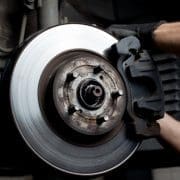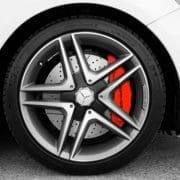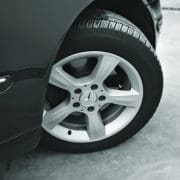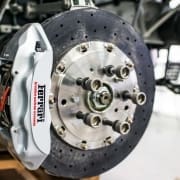THE UBER/BOLT (Taxify) DRIVER’S CAR MAINTENANCE GUIDE
If you drive a Uber/Bolt (Taxify), you rack up a lot of kilometers, which means extra wear and tear. A car in the garage is not making you any money, so keeping up with the maintenance is extremely important. If you’re doing Uber or BOLT (Taxify), driver/owner, here are tips on how to stay on the road and earn the most cash.
First off, if you drive your own vehicle for a living, you likely want to follow the severe service car maintenance schedule. You might be thinking, “Hey, I’m only taking two people to the airport. I never tow, so it’s not severe service.” Actually, it is. The average driver in the South Africa racks up around 30 000 kilometers per year, but driving full time for a UBER/BOLT (Taxify) service can bring that annual total to 90 000 kilometers. A lot of those kilometers are spent carrying passengers through stop-and-go traffic in the summer heat nor winter colds. That’s work more in line with a taxi or police car. Let’s use some tricks of the trade from those services.
ENGINE PROTECTION
Oil: While you probably know how often to change your oil in a regular daily driver, an UBER/BOLT (Taxify) car needs a more frequent oil change schedule. You’re looking at lots of idling, stop and go, long periods with the engine on, and a lot more kilometers in general, so you want to use a high-quality oil. Depending on the kilometers you cover, you may be looking at changing the oil as often as every two weeks. While that may seem excessive, it is excellent preventative maintenance.
Filters Change out the oil filter with your oil change, and take a look at the engine air filter, too. These two are key to preventing engine damage. Also change your cabin air filter more often. The usual schedule is once a year, but aim for twice a year to keep your vehicle smelling fresh.
SUSPENSION & BRAKES, TIRES
Brakes Most drivers only change their brake pads every two to four years. With full-time UBER/BOLT (Taxify) work, however, you’re probably looking at every six months and sometimes every three months. Get the highest-rated pads you can afford, and save money by swapping them out and replacing the brakes yourself.
Suspension Shocks and struts are wear items that need replacing, usually only around three times in the average lifespan of a car. If you are a full-time driver, you are looking at annual replacement. No skipping out on this one, as shocks and struts are critical components of the suspension that determine ride quality. No one wants to ride in a vehicle with an overly harsh or bouncing suspension, so get it replaced on time. In addition to shocks and struts, you will probably have to replace the vehicle’s springs around 170 000 kilometers. In South Africa, there are a lot of potholes, this means that, you’ll probably need to replace the tie rods early and get to know a reliable place for an alignment.
Tires Get a super-affordable tire pressure gauge and check your tire pressure daily before starting your shift. Why daily? Tire pressure affects everything from the ride quality and tire wear to petrol mileage, so it’s an easy and quick way to save more and earn more. Rather than going out of your way to a petrol station with free air, use your own portable pump. Keep tire rotation on your calendar, too, for longest tire life. A good rule of thumb is to do so during every oil change.
LET US, HELP YOU!
We hope this information keeps you on the road so that you can make maximum cash. If you need assistance with nay repairs or juts a service just click here for and instant upfront quote and Michanic will send a trusted and qualifies mechanic to you. We operate every day of the week and after hours to make sure that our customers can get maximum use out of their cars.
If you have any other questions or concerns regarding your car, feel free to talk to our customer service team through email at [email protected], or by phone on 087 803 9000. Or check what our customers say about out service on Hellopeter or Google.




